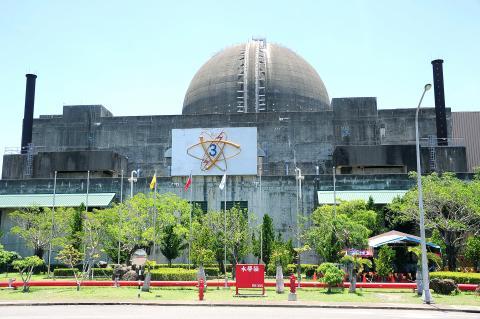Taiwan should promote the development of biotechnology in the agricultural sector in a bid to contribute to society, Academia Sinica President Lee Yuan-tseh (
In a speech at a forum on Competitiveness and Development Strategies for the Agricultural Biotechnology Industry in Taiwan held by the Cabinet's Science and Technology Advisory Group (行政院科技顧問組) in Taipei yesterday, Lee said that characteristics of Taiwan's traditional agriculture should be regarded as one of the bases for future promotion of biotechnology.
Past research on agricultural improvement have made Taiwan one of the most promising countries in the subtropical zone, Lee said.
"To further contribute to society, Taiwan should promote the development of biotechnology in the agricultural sector," Lee said, implying that eradicating hunger depends on stabilizing fragile agricultural ecology.
According to Lee, rapid population growth in the 20th century has reduced the area available for cropland, meaning the planet can no longer support such large numbers.
Lee said that the world's population had quadrupled over the past century, adding that people are facing a dramatic reduction in the area of cropland per person.
Lee attributed the slowness of agricultural development to a deteriorating environment caused by industrialization. Polluted air, Lee explained, blocks sunshine that helps the growth of agricultural products.
Green revolution
Lee said that modern agriculture is experiencing a green revolution, which is driven by advances in biotechnology.
Genetically modified agricultural products have greater output due to their resistance to insects, the Academia Sinica president added.
Meanwhile, Lee said, developing countries still have rapidly growing populations and most of the world's poor still suffer from a lack of food.
"Poor countries, however, shrink at the sight of bioenhanced agricultural products," Lee said, adding that the patents involved with such products are a deterrent to their use.
Countries in the developing would suffer if all bio-tech enterprises endeavor to apply for patents, the Academia Sinica president said.
Strategy for change
"As global warming is becoming dramatic, Taiwan must have its short-term, mid-term and long-term strategies to improve agricultural development to deal with environmental changes," Lee said.
Yesterday's forum, part of the five-day Strategies for Taiwan's Industrial Technology conference that began on Monday, included an analysis of the agricultural biotechnology industry in Taiwan, a review of existing agricultural policies and discussion of new directions for improving R&D in biotechnology.
Today, more than 500 local and overseas participants will discuss electronics, information technology and biotechnology.
Their suggestions and conclusions will be reviewed by Premier Yu Shyi-kun, who will chair tomorrow's closing ceremony.

A fugitive in a suspected cosmetic surgery fraud case today returned to Taiwan from Canada, after being wanted for six years. Internet celebrity Su Chen-tuan (蘇陳端), known as Lady Nai Nai (貴婦奈奈), and her former boyfriend, plastic surgeon Paul Huang (黃博健), allegedly defrauded clients and friends of about NT$1 billion (US$30.66 million). Su was put on a wanted list in 2019 when she lived in Toronto, Canada, after failing to respond to subpoenas and arrest warrants from the Taipei District Prosecutors’ Office. Su arrived at Taiwan Taoyuan International Airport at 5am today on an EVA Air flight accompanied by a

An essay competition jointly organized by a local writing society and a publisher affiliated with the Chinese Communist Party (CCP) might have contravened the Act Governing Relations Between the People of the Taiwan Area and the Mainland Area (臺灣地區與大陸地區人民關係條例), the Mainland Affairs Council (MAC) said on Thursday. “In this case, the partner organization is clearly an agency under the CCP’s Fujian Provincial Committee,” MAC Deputy Minister and spokesperson Liang Wen-chieh (梁文傑) said at a news briefing in Taipei. “It also involves bringing Taiwanese students to China with all-expenses-paid arrangements to attend award ceremonies and camps,” Liang said. Those two “characteristics” are typically sufficient

A magnitude 5.9 earthquake that struck about 33km off the coast of Hualien City was the "main shock" in a series of quakes in the area, with aftershocks expected over the next three days, the Central Weather Administration (CWA) said yesterday. Prior to the magnitude 5.9 quake shaking most of Taiwan at 6:53pm yesterday, six other earthquakes stronger than a magnitude of 4, starting with a magnitude 5.5 quake at 6:09pm, occurred in the area. CWA Seismological Center Director Wu Chien-fu (吳健富) confirmed that the quakes were all part of the same series and that the magnitude 5.5 temblor was

Restarting the No. 2 reactor at the Ma-anshan Nuclear Power Plant would take up to 18 months, Minister of Economic Affairs J.W. Kuo (郭智輝) said today. Kuo was answering questions during a meeting of the Legislative Yuan’s Economics Committee, where legislators are considering amendments to the Renewable Energy Development Act (再生能源發展條) amid concerns about the consequences of the Pingtung County reactor’s decommissioning scheduled for May 17. Its decommissioning is to mark the end of Taiwan’s nuclear power production. However, Chinese Nationalist Party (KMT) lawmakers have proposed an amendment to the Nuclear Reactor Facilities Regulation Act (核子反應器設施管制法) that would extend the life of existing